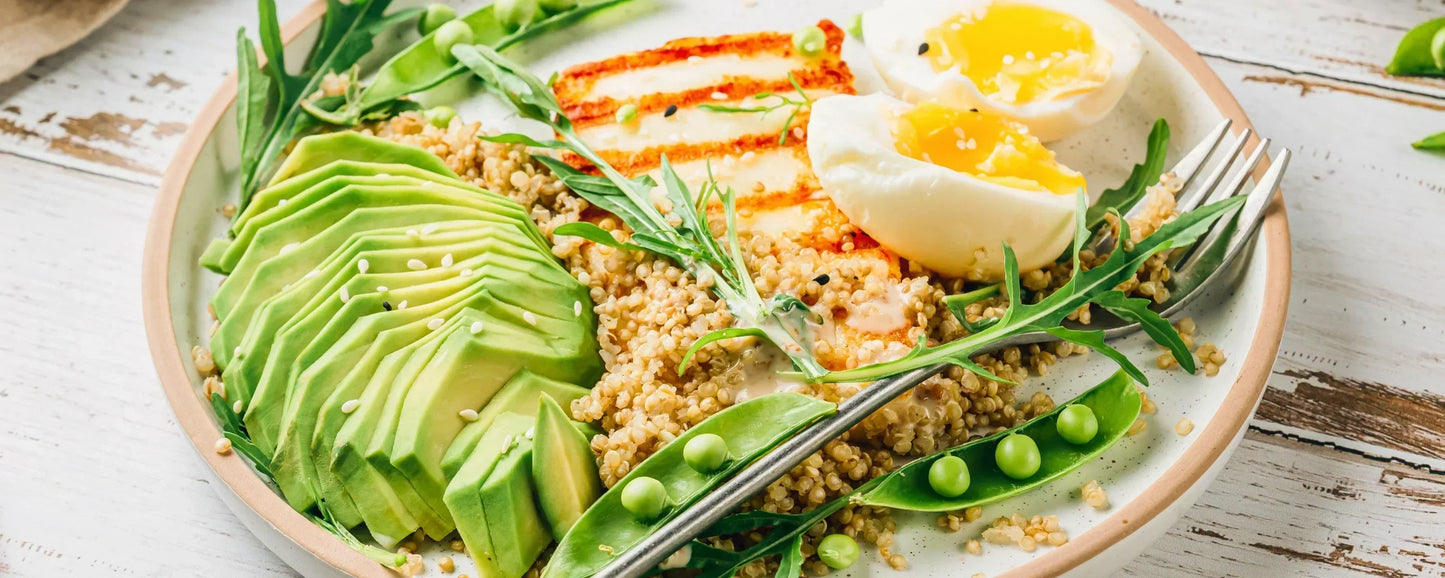
Mental illnesses are among the most common health conditions in the United States, according to the Centers for Disease Control and Prevention (CDC). More than one in five U.S. adults and youths age 13-18 lives with a mental illness. In fact, mental illness is more prevalent than cancer, diabetes, or heart disease.
Mental illnesses were never reported and diagnosed at the rate they are today. Yet still, the current rush of life, overstimulation, lack of time to do it all, and the pressure of self-actualization have combined to create such a rise in depression and anxiety disorders that numbers are becoming that of a global epidemic.
While psychotherapy and certain pharmaceuticals are often the prescription for a mental health diagnosis, these treatments haven’t always, or alone, resulted in better outcomes. As a result, other interventions for improving mental health have surfaced. And the search has been on to learn which, if any, nutrients are most beneficial.
The Science of Food and Mental Health
Experts note that the rise of mental health conditions correlates with changes to our food system over the last half century. As a whole:
- We are eating more average calories per day from more processed, high-energy, and nutrient-poor foods
- We are not taking in the recommended values of micro and macronutrients that play a significant role in the proper functioning of our nervous system, namely B vitamins, zinc, and magnesium
- We consume less fiber and nutrient-rich vegetables than recommended
So if you were to eat better for your mental health, what would that look like? According to research, the following nutrients and best foods for mental health matter the most.
Key Nutrients for Mental Well-being
A 2022 systematic review of 356 studies examined the effects of nutrients and foods for mental health. They concluded that the following nutrients have high levels of psychoprotective effects on humans, which means they’re beneficial in preventing and improving mental health.
- Omega-3 unsaturated fatty acids
- Folate and Folic Acid
- Flavonoids
- Tryptophan
- Lignans
- Phytoestrogens
- Alpha-lipoic acid
- Magnesium
- Zinc
Omega-3 Fatty Acids: Essential for Brain Health
Fatty fish and other seafood is one of the best sources of omega 3 fatty acids, an essential fat. And that's especially true of mackerel, salmon, herring, oysters, sardines, anchovies, and caviar.
You can also get them from omega-3 supplements made from cod liver oil, krill oil, other fish oils, and algal oil (a vegetarian source). Finally, omega-3s are abundant in ingredients in Struesli, especially in the flaxseed, walnuts, and chia seeds.
The Role of Folate and Folic Acid
Folate is a B vitamin that’s found naturally in many foods and also added to some foods and supplements in the form of folic acid. Some foods high in folate are beans and other legumes, asparagus and leafy greens, eggs, and beets.
Flavonoids: Brain-Boosting Compounds
These compounds are lacking in many diets that rely on highly processed foods and they’re extremely important for brain function. The benefits of flavonoids are many, including protecting cells, reducing the risk of inflammation, playing a role in lowering blood pressure and cholesterol, and having neuroprotective effects on the brain.
Find flavonoids in all plant-based foods, mainly tea, fruits, vegetables, grains, legumes, nuts, and wine. Some plant-based foods that are especially high sources of flavonoids are leafy vegetables, onions, apples, berries, cherries, soybeans, and citrus fruits.
Tryptophan: The Mood Stabilizer
This essential amino acid plays a big role in producing hormones that are known as mood stabilizers. In addition to helping to stabilize mood, tryptophan benefits include sleep improvement, appetite control, and improving cognitive function, including improved memory and focus. Find tryptophan in milk, canned tuna, turkey and chicken, nuts and seeds, and bread.
Lignans and Their Antioxidant Benefits
These compounds are high in antioxidants and other anti-inflammatory. Find them in whole grains and seeds (like the seeds in Struesli), including flax seeds (the highest source), barley, buckwheat, millet, oats, rye, sesame seeds, and wheat.
Phytoestrogens and Hormonal Balance
These compounds have a positive effect on hormones. Find them in many fruits, beans and legumes, leafy greens, red wine, cruciferous vegetables, and nuts.
Alpha-lipoic Acid and Brain Protection
This compound acts like an antioxidant and has brain protective effects in the body. Find it in red meat, carrots, beets, spinach, broccoli, and potatoes.
The Importance of Magnesium for Mental Health
This essential mineral is lacking in many Western diets, and it plays a significant role in mental health, including its effect on mood, sleep, and nerve function. When increasing magnesium for mental health, get it in legumes, nuts, seeds, bananas, avocados, tiger nuts, and whole grains.
Zinc: A Vital Trace Mineral
This trace mineral is important for building cells and proteins needed for brain and mental health. Find it in oysters and other seafood, red meat, poultry, and nuts.
Practical Tips for Eating for Mental Health
Though nutrition is but one tool to improve mental health, it can be a highly effective to enjoy more of the best foods for brain health. When you understand that a well-rounded, healthful diet made up of real foods has many benefits, including mental health benefits, then you start to see its ultimate value. Then, it’s more clear to see that what you choose to eat is one of the most important decisions you make every single day. Foods like Struesli were created to help you enjoy your meals while also reaping all the nutritional benefits of better foods at the same time. Mental health and nutrition have a connection, so eat like your mental health depends on it, because it does.
Written by Jessie Shafer, RD
Updated February 25, 2025




